Jamie Bamber on the legacy of Battlestar Galactica, 21 years on
Battlestar Galactica is widely considered one of the best and smartest dramas of this century. One of its stars, Jamie Bamber, explains why it’s even more urgent now.
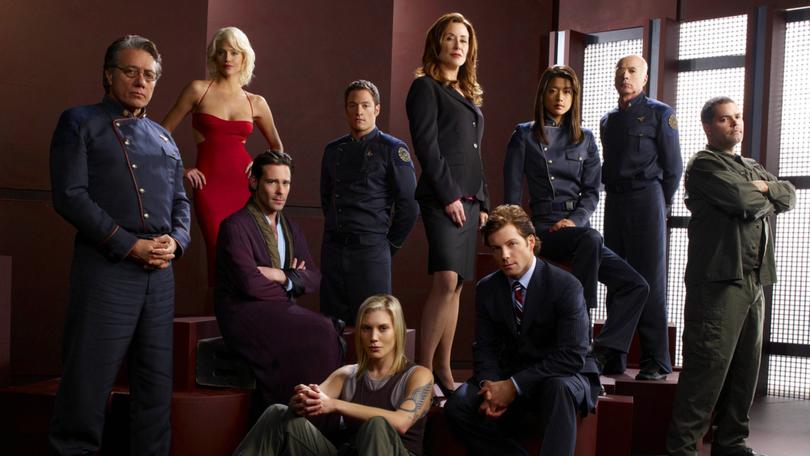
In the US version of The Office, in one of Jim Halpert’s pranks, he impersonates his uptight colleague Dwight Schrute by stating the axiom, “Bears, beets, Battlestar Galactica”. The three things are, in Jim’s view, fundamental to Dwight’s very being.
The association of the character of Dwight, he of the short-sleeved mustard shirt and penchant for rules, with the ground-breaking sci-fi series is a funny joke, but it may also be a tad unfair.
Battlestar Galactica, or BSG, may have a goofy name and was a reboot of a maligned 1970s Star Wars rip-off space opera, but it is widely recognised as one of the best TV series of this century. The New York Times put it on a list of the 20 best dramas since The Sopranos, alongside the likes of The Wire, Mad Men and Breaking Bad.
Sign up to The Nightly's newsletters.
Get the first look at the digital newspaper, curated daily stories and breaking headlines delivered to your inbox.
By continuing you agree to our Terms and Privacy Policy.BSG was serious stuff.
“It was the giddy combination of sci-fi that wasn’t childish. It was genuinely in the tradition of H.G. Wells, Isaac Asimov and Aldous Huxley. It was political, social science fiction rather than gimmick-led science fiction,” Jamie Bamber, the British actor who played Lee “Apollo” Adama, told The Nightly.
“It appealed to grown-ups and it appealed to people whose worldviews were being challenged.”
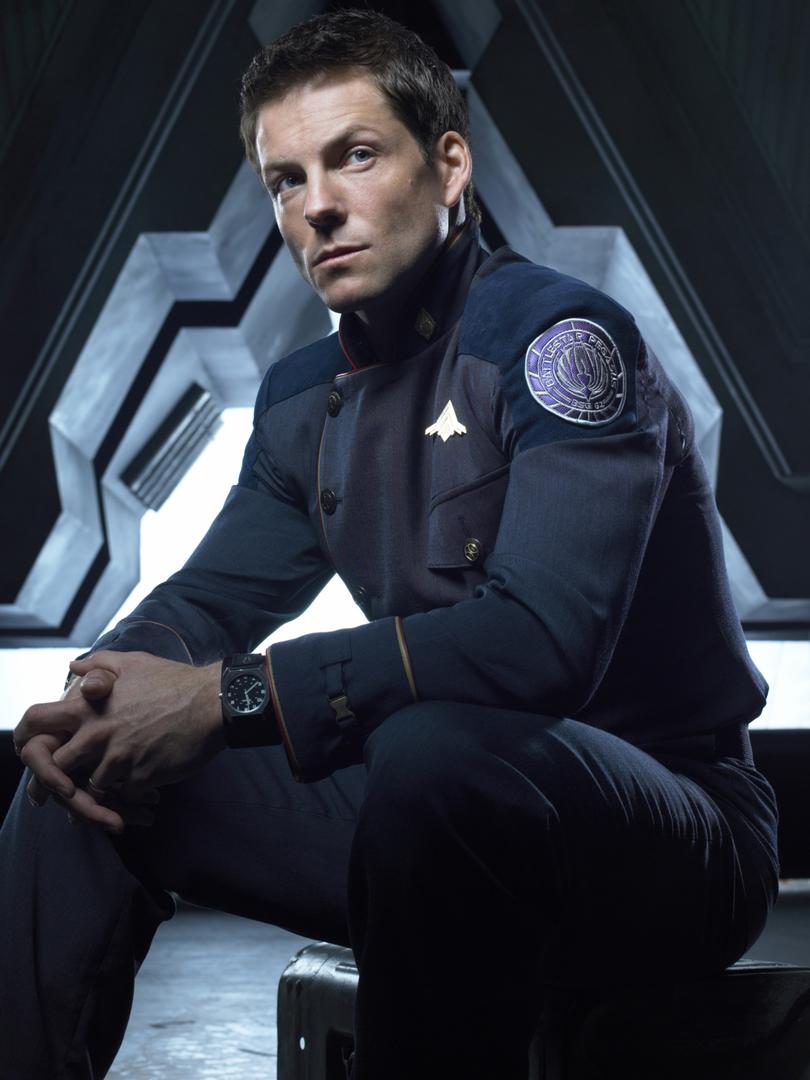
BSG kicked off with a 2003 miniseries which segued into four seasons of TV, starting in 2004, running to 2009. It told the story of the last 50,000 humans alive after a catastrophic attack on the home planets by Cylons, a race of AI robots who rebelled against their creators.
The survivors were all in transit on civilian spaceships when the attack happened, along with one military battlestar, the Galactica, which was in the process of being de-commissioned. Everyone on the ground, billions of people, were killed.
The fleet embarks on a mission to search for a mythical colony, Earth, while fending off civil unrest, dwindling resources, trauma and sleeper cells of Cylon agents.
Ronald D. Moore, the creator of the “re-imagined” BSG, has always said his inspiration for the show was the 9/11 attacks, the conflict between monotheism and polytheism, and US foreign policy in the years following.
BSG became an agent for exploring themes of how you respond to an attack from within that you didn’t see coming, and what are you willing to sacrifice to “feel safe” again. At its core, it’s an interrogation of who you want to be in the wake of unfathomable tragedy. It’s deeply humanist storytelling.
In his interactions with fans over the years, including at conventions such as Metro Comic Con in Melbourne, where he is appearing this weekend, Bamber has found that people hold onto different aspects of the show.
“Some people are really into the politics, some people are really into the mythology of it, some people are really into the technology and it being an allegory of humanity’s inability to understand its own creations and to think things through before it does something,” he said.
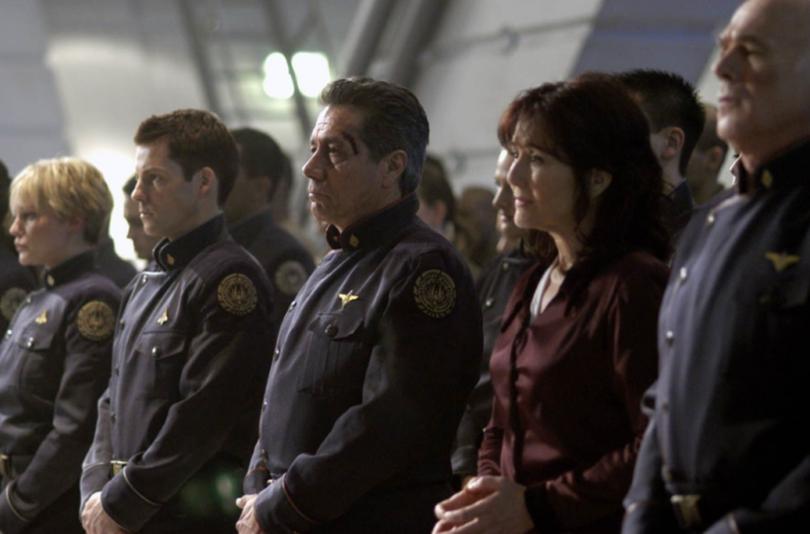
“There are so many different angles to come at the show. For some people, it’s a romantic story, or one about family. Or it’s the biblical exodus story.
“The show is followed by the most interesting, intelligent bunch of people. Not that you have to be any of those things to appreciate it, but it does attract those people because they can chew on and reflect on it in different ways.
“That makes interacting with fans that much more enjoyable for me because there isn’t a typical Battlestar fan and there isn’t a typical response to it.”
In the 21 years since fans first acquainted themselves, the series has remained urgent and relevant. Bamber can see the politics in BSG in “what’s going on today in Russia and Ukraine”.
“It will never stop being relevant,” Bamber added. “That’s the thing that is a constant, people going ‘I can’t believe how relevant this is’. That’s an amazing thing to have made a piece of television that still stands up and that hasn’t become obsolete by technology itself.”
Some of the conversations in BSG are actually more germane in 2024 than in 2004, such as AI, which is never far from public discourse as we consider what tech advancements mean for people’s lives and livelihoods.
It can be a binary discussion, whether it’s either the greatest threat to mankind’s existence or it will create a utopia. The truth, like most things, is likely somewhere in the middle.
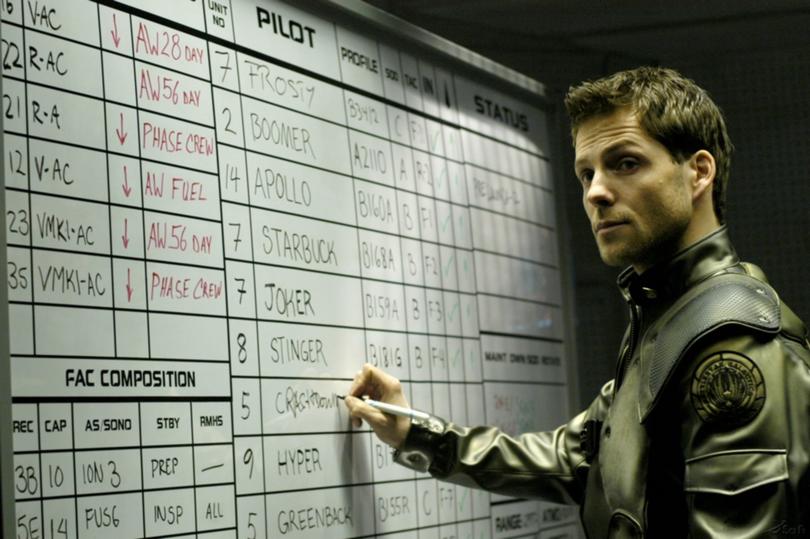
BSG may have cast the Cylons as the villains at the start of the show (genocidal acts tend to have that effect) but the writing becomes more complex as the series went on, introducing and developing Cylon characters who can be good and bad and neither, who make emotional decisions and who feel genuine love.
There’s something in that for a rusted-on fan and newcomers to BSG to consider, Bamber argued.
“We always have to appreciate that technology is an inevitable part of our progress and it will cause harm but it will also do good. That’s the allegory of Battlestar, which is you get hybrids, you get a situation in the future where there are genuine learning opportunities both ways, and love is involved, and that changes everything,” he said.
“Any young person watching the show today, regardless of what we made the show to be about, it will be revelation to them, and it will be a way of understanding their world that they’re living in, and the fact love becomes involved in the relationship.
“That’s the boldest thing we did with it, we introduced emotion into that paradigm. And that’s very scary to think of robots as being capable of love or the interaction between a human and a robot as being defined by love.
“At a certain point, that’s the moment that makes this show special, that we dared to even have that conversation that it could be possible.”
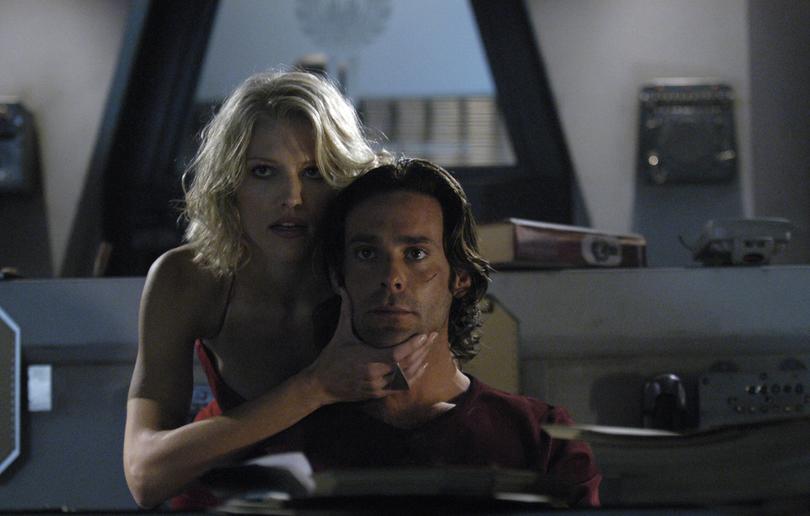
BSG was part of that noughties wave of TV that we call the golden age of television, when everyone was talking about how great the medium had become.
That gave way to Peak TV, when then-newer entrants such as the streamers supercharged the volume of TV shows, and as with anything when quantity comes in, the quality diluted.
Now, it’s changing again, and Bamber isn’t confident the industry shifts will lead to the same chutzpah in TV making.
“We’re going through the opposite, we’re contracting because the streamers are really in trouble, and so they’re having to make very safe programming with all the big stars and they’re all competing for the same eyeballs.
“And now they’re introducing advertising, which is going to change everything because now they have to appease these big companies who want to be perceived in a certain way, and are not free to take the huge risks.
“We were in that moment when cable channels really knew that they had a superpower, which was that they could tell a story that was a bit different, that could be a bit more edgy and more adult.”
Jamie Bamber is appearing at Metro Comic Con in Melbourne on July 13 and 14

